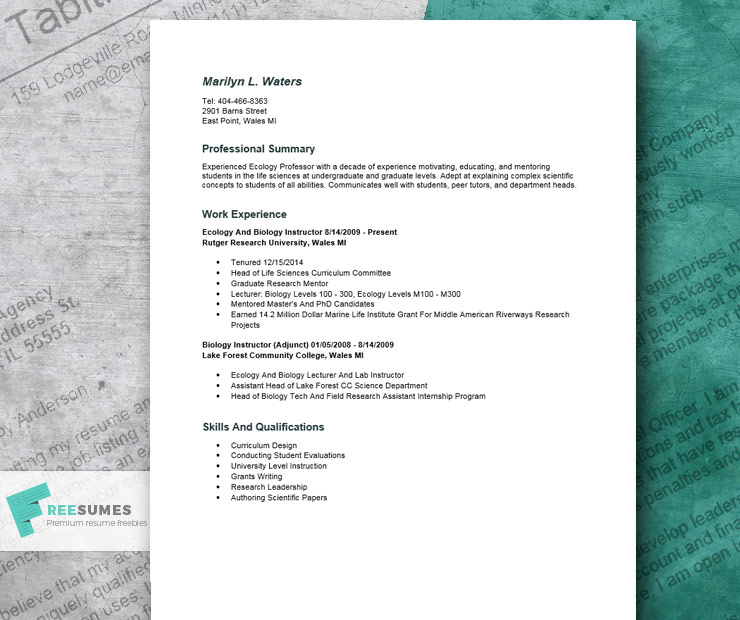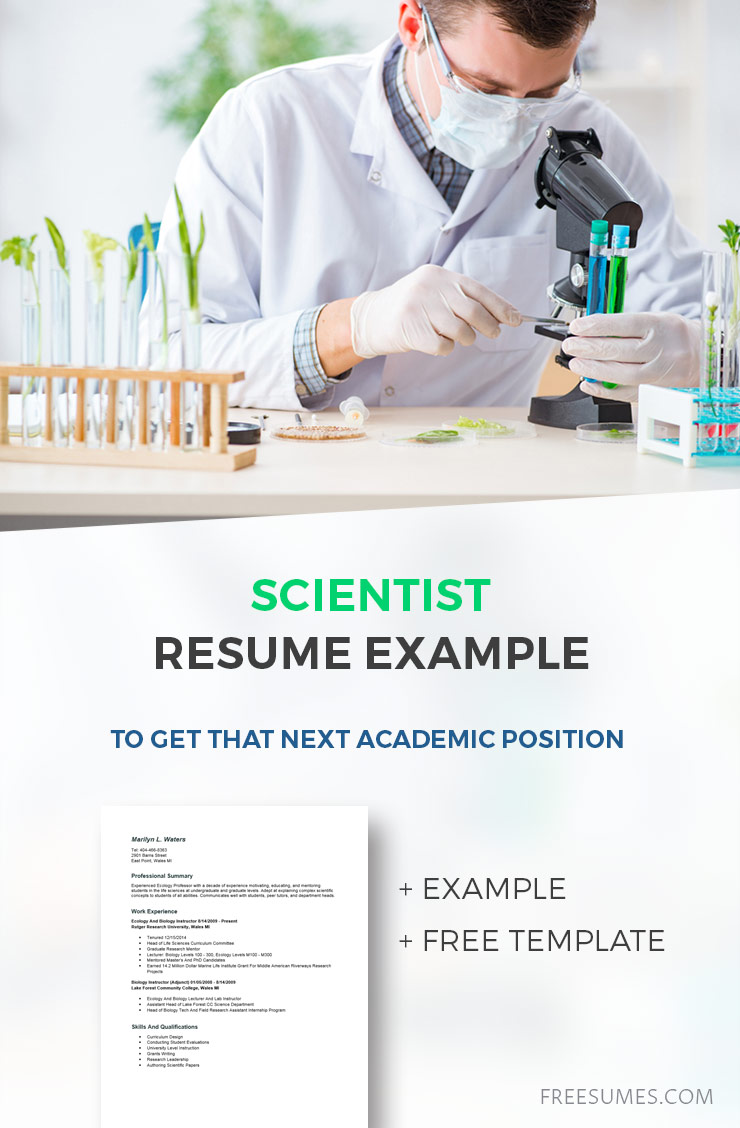If you decided to pursue a career in science after grad school, inevitably, you’ll have to make several important decisions. The first is whether you will pursue a career in academics/education sector, or you will work in the private sector. While this post will largely focus on the challenges of finding a job in academia, it will also provide some counter points for those looking for a position in the industry. That’s a first.
Secondly, to keep your career path on the right trajectory, you’ll also need a great resume. That’s why we have included a detailed and compelling scientist resume sample as well that you can use to model your application. So let’s dig in!
Be Prepared to Earn Your Academic Stripes
In some disciplines e.g. Arts and Humanities, receiving your PhD is your lead into academia. However, merely earning that title is just the beginning in most scientific disciplines. Here are some challenges you may face before you are hired onto any permanent position at a college or university:
- You’ll need to build up your skills and experience by working on multiple short-term projects, post-doctoral work, and temporary jobs.
- Your first jobs in academia will likely be part-time adjunct positions.
- Plus, you will need to compete for the best internships, externships, and assistantships while you attend school to qualify for positions in more prestigious research institutions.
Most importantly, you will be up against some very talented people when you apply for academic work. That’s why your resume must be spot on. Here are some great tips for that.
Choose an Objective or a Professional Summary
The first item on your resume should be a summary of your experience, or a career objective. The one you pick depends on a single factor; your experience. If you have more than two years of experience in academics, you should write a brief, professional summary. If you have less than two years of experience, stick with a career objective.
What’s the difference? A professional summary will highlight your experience and job related achievements. A career objective will highlight your skills, and show that your career is on a growth track.
Below is a quick career objective sample for a scientist:
Recent PhD graduate seeks assistant professorship in the Life Sciences department of a major college or university. One year experience in field biology research. Currently working as a part-time instructor at Wakefield community college in the sciences department.
Are you pursuing a job in the private sector? Good news! The same advice applies.
Choose a Chronological or Functional Resume
If you have significant experience in academics, or the business sector, you should leverage that experience with a chronological resume. This will provide context to your skills.
On the other hand, if you are light on experience, try a functional resume format. This will lead off with your skills. By doing this, you can showcase skills you have developed both as a graduate student as well as skills you have learned on the job, and through research projects.
Once again, this tip works well for all job-seekers in the science disciplines.
Treat Academic Work as You Would Any Work Experience
Whether you lead with your skills, or your work experience, you should always place work experience ahead of your educational history. However, some of your educational experience does belong in the work history section of your resume. This includes:
- Work on Research Projects
- Work as a TA
- Post-Doc Work
- Internships
As part of each entry, you should provide bullet points listing what you accomplished. For example, if you completed a research project, list the research questions you asked or answered as part of that research.
If you are looking for work outside of academics, doing this can show hiring managers the practical results of the work you did as a student.
Resume Sample for Scientist (Word Version)

Download resume example (.docx)
Scientist Resume Example (Text Version)
Tel: 404-466-8363
2901 Barns Street
East Point, Wales MI
Professional Summary
Experienced Ecology Professor with a decade of experience motivating, educating, and mentoring students in the life sciences at undergraduate and graduate levels. Adept at explaining complex scientific concepts to students of all abilities. Communicates well with students, peer tutors, and department heads.
Work Experience
Ecology And Biology Instructor 8/14/2009 – Present
Rutger Research University, Wales MI
- Tenured 12/15/2014
- Head of Life Sciences Curriculum Committee
- Graduate Research Mentor
- Lecturer: Biology Levels 100 – 300, Ecology Levels M100 – M300
- Mentored Master’s And PhD Candidates
- Earned 14.2 Million Dollar Marine Life Institute Grant For Middle American Riverways Research Projects
Biology Instructor (Adjunct) 01/05/2008 – 8/14/2009
Lake Forest Community College, Wales MI
- Ecology And Biology Lecturer And Lab Instructor
- Assistant Head of Lake Forest CC Science Department
- Head of Biology Tech And Field Research Assistant Internship Program
Skills And Qualifications
- Curriculum Design
- Conducting Student Evaluations
- University Level Instruction
- Grants Writing
- Research Leadership
- Authoring Scientific Papers
One Last Tip: Don’t Forget to Include Any Academic Honors You Have Received.
This includes listing any instances of your having been published in scientific journals and peer-reviewed journals, faculty rewards and other accolades. The easiest way to list your papers is to include some of the most relevant titles and provide a link to your Google Scholar profile for more information.







